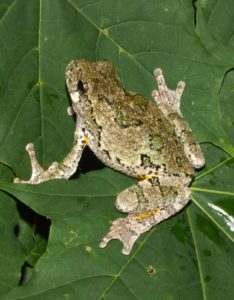5 A. M. —To Gilead. (Began to leaf yesterday.)
Still finger-cold. Think I saw bank swallows. (Not at all certain.)
At noon begins a cold, drizzling rain, which continues at intervals through the next day. A cold May storm, wind easterly.
Grackle here still. Cultivated cherry opened flower yesterday.
The rock maples (such sized as we generally have) come on faster and show more now than the red.
H. D. Thoreau, Journal, May 8, 1855
At the view after sunset the sound (apparently) of a robin clucking, then a red breasted grosbeak bursts into song, at length. The hermit thrush nasal note to the right. Sound of peepers down in the wetland drifts up. A robin for certain. Loud tree frog. (hyla something* Jane says, not rana sylvaticus - that is the tiny wood frog.) Barred owl noises. A quick gobble i suppose of a turkey. The serviceberry in the clearing is in bloom. Down via the middle pond. Just before home another owl closer.

The rock maples (such sized as we generally have) come on faster and show more now than the red.
H. D. Thoreau, Journal, May 8, 1855
At the view after sunset the sound (apparently) of a robin clucking, then a red breasted grosbeak bursts into song, at length. The hermit thrush nasal note to the right. Sound of peepers down in the wetland drifts up. A robin for certain. Loud tree frog. (hyla something* Jane says, not rana sylvaticus - that is the tiny wood frog.) Barred owl noises. A quick gobble i suppose of a turkey. The serviceberry in the clearing is in bloom. Down via the middle pond. Just before home another owl closer.
The sound of peepers
drifting up from the wetland,
then a loud tree frog.
May 8, 2015
* Gray Treefrog (Hyla versicolor)

A gray lichen-like pattern on their skin with a light patch under the eyes, and no dorsolateral ridges (no folds of skin on either side of its back), The Gray Treefrog has larger adhesive toe pads than the Spring Peeper and is an excellent climber. Gray Treefrogs have a loud short trill and often call from the trees where they feed. They generally call on warm, humid nights from April through July



No comments:
Post a Comment